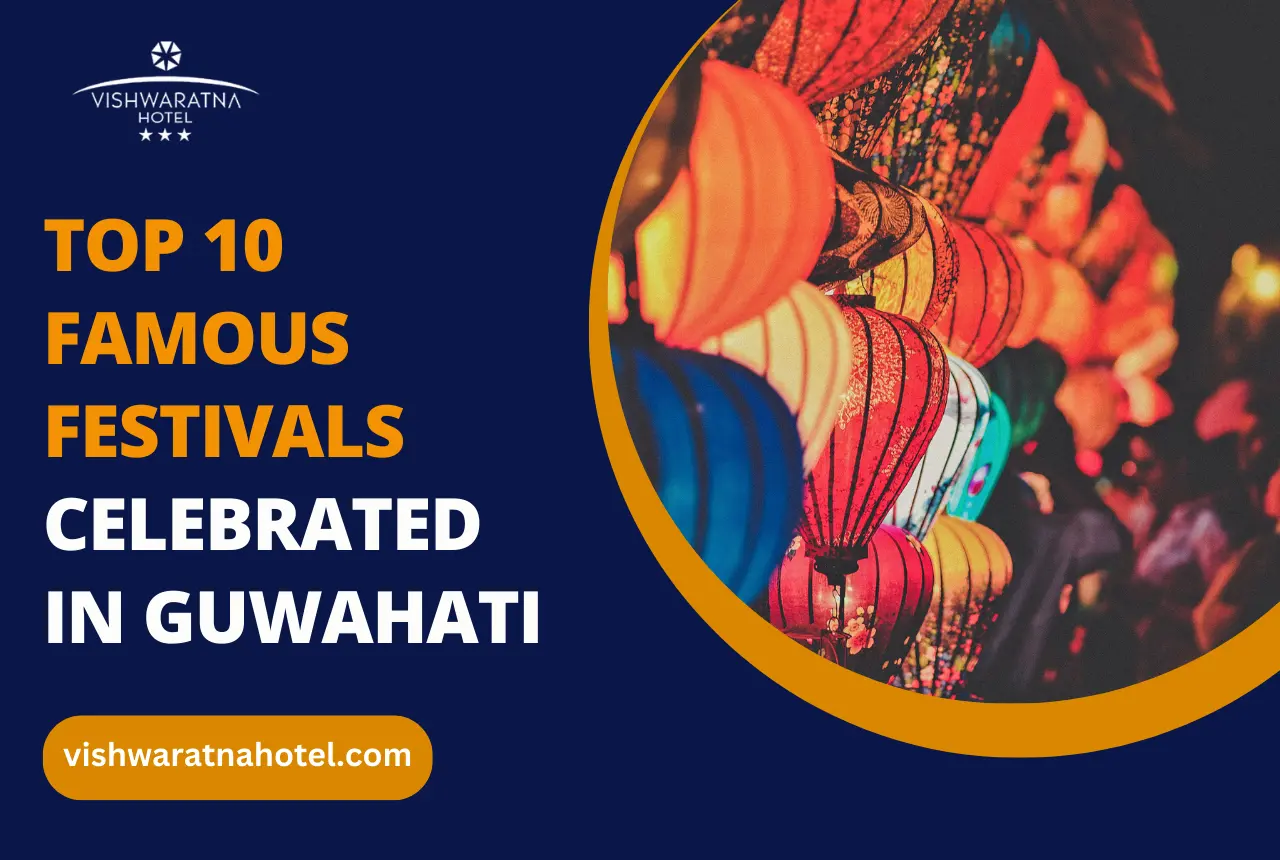Guwahati, the largest city in Assam, is a cultural hub that pulsates with life and color throughout the year. Known for its rich history, vibrant traditions and diverse cultural landscape, Guwahati is a city that celebrates numerous festivals with great enthusiasm and joy.
These festivals are not only a reflection of the city’s cultural heritage but also a testament to its communal harmony and spirit.
From the widely celebrated Bihu festivals to the unique Ambubachi Mela, the festivals of Guwahati are a blend of religious fervour, cultural expressions and social gatherings. They bring together people from all walks of life, creating a tapestry of unity and joy.
In this blog, we will explore the top ten famous festivals celebrated in Guwahati, each offering a unique glimpse into the cultural heart of Assam.
These are the 10 Famous Festivals Celebrated in Guwahati
1. Bihu
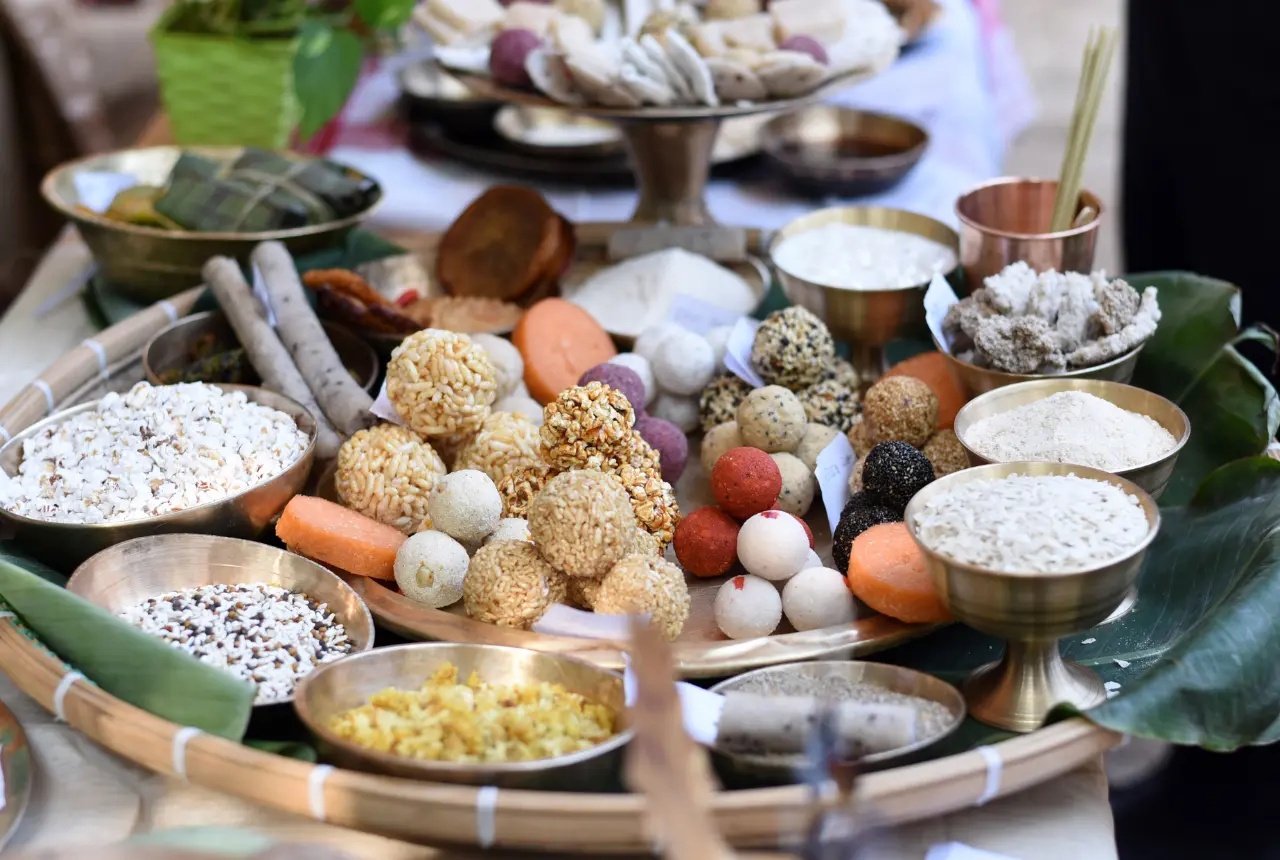
Bihu is the most prominent and widely celebrated festival in Assam and one of the most important cultural event of Assam, marking significant phases in the agricultural calendar. Celebrated thrice a year, each Bihu festival has its unique essence and charm.
Magh Bihu (January)
Also known as Bhogali Bihu, this is the harvest festival celebrated with bonfires, feasting and merriment. On the eve of Magh Bihu, known as Uruka, families gather around bonfires (meji) and enjoy a grand feast. The next day, people perform traditional rituals and offer prayers for fertility and prosperity.
Bohag Bihu (April)
Known as Rongali Bihu, this festival marks the Assamese New Year and the onset of spring. It is a time of feasting, singing, dancing and joyous celebrations. People don traditional attire and participate in Bihu dance and folk music (Bihu Geet). The festival involves community feasts featuring special dishes like pithas (rice cakes) and larus (sweetmeats). Homes are decorated and prayers are offered for a bountiful harvest.
Kati Bihu (October)
Also known as Kongali Bihu, this is a quieter festival focused on rituals for the well-being of crops and livestock. People light earthen lamps (sakis) in their fields and near their homes, seeking blessings for a good harvest.
In Guwahati, Bihu is celebrated with grandeur and vibrancy. The city hosts numerous Bihu functions, cultural events and exhibitions. Streets and homes are adorned with colorful decorations and the air is filled with the sounds of traditional Bihu songs and dances, making it a truly immersive experience.
2. Ambubachi Mela
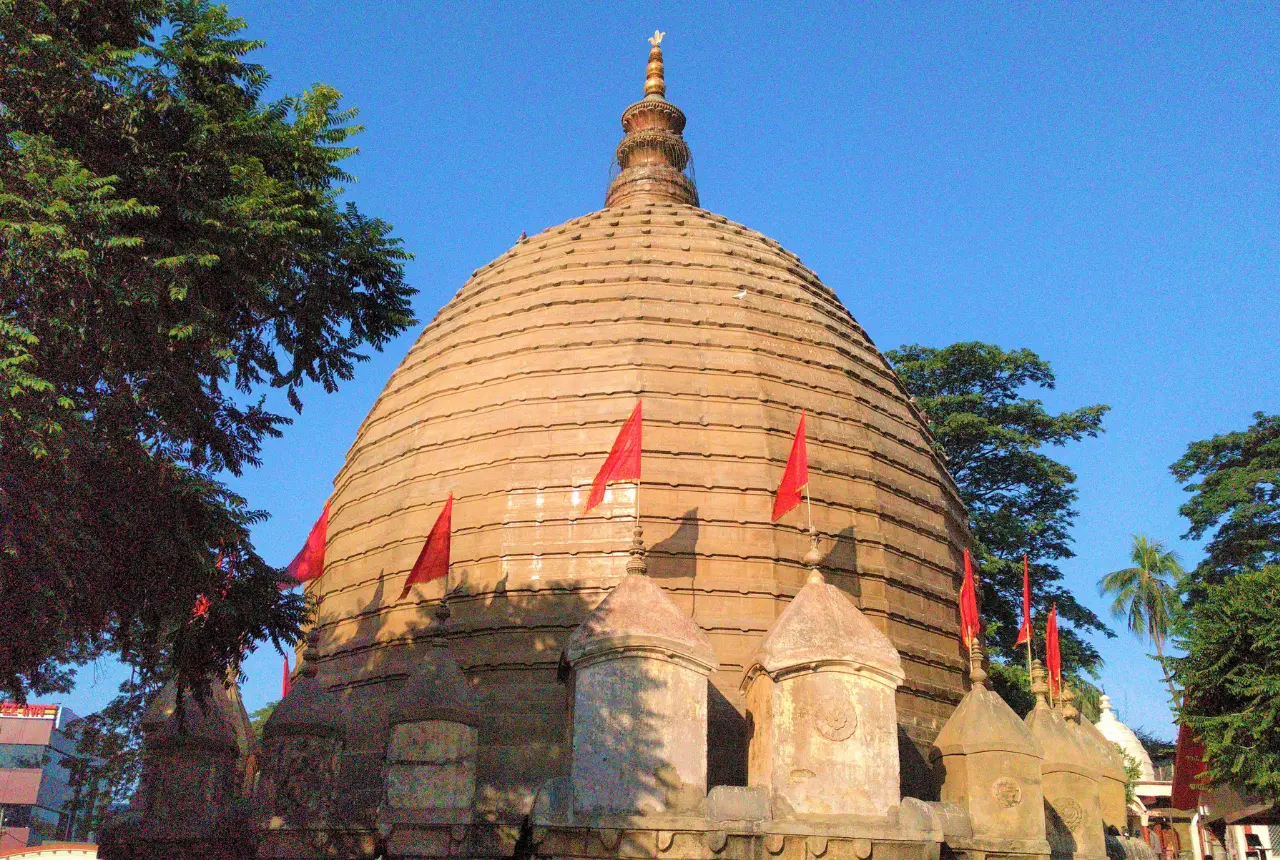
Ambubachi Mela is a unique and significant religious festival associated with the Kamakhya Temple in Guwahati. This festival, which takes place in June, is rooted in tantric rituals and celebrates the annual menstruation cycle of Goddess Kamakhya, symbolizing fertility and the nurturing aspect of the goddess.
During the festival, the temple remains closed for three days, symbolizing the goddess’s period of rest. On the fourth day, the temple doors are opened and a grand fair ensues. Thousands of devotees, ascetics and tourists from across India and the world gather to participate in the rituals and seek the goddess’s blessings. The mela is marked by various religious ceremonies, cultural performances and a vibrant marketplace, making it a unique spiritual and cultural experience.
3. Brahmaputra River Festival
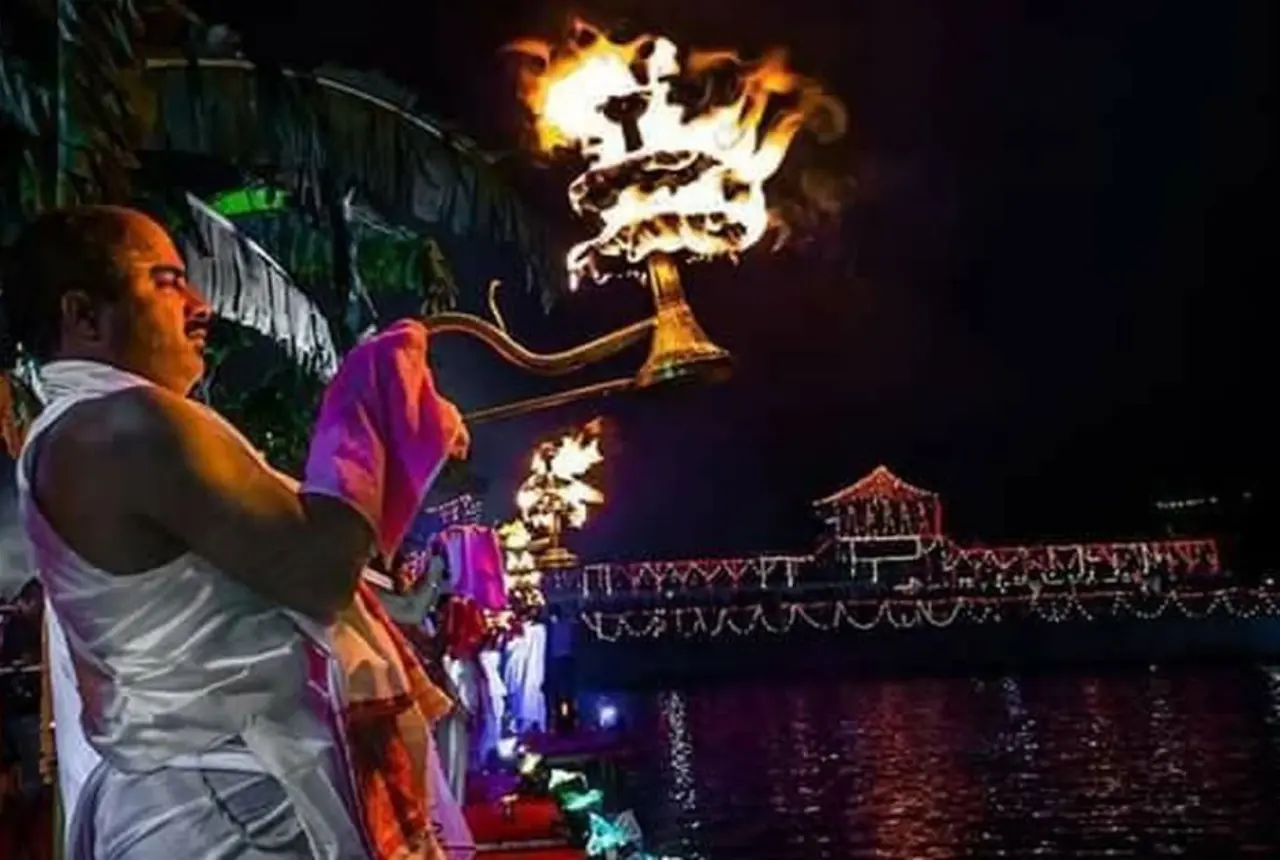
Held in February, the Brahmaputra River Festival is a relatively new but increasingly popular festival in Guwahati. It celebrates the majestic Brahmaputra River, which is integral to the region’s culture and livelihood. The festival features a variety of activities, including water sports, cultural performances and exhibitions showcasing Assamese culture and heritage. Food stalls offering local delicacies add to the festive atmosphere giving the vibe of Guwahati’s food festivals. The festival aims to promote tourism and highlight the natural beauty of the Brahmaputra, making it a significant event in Guwahati’s cultural calendar.
4. Rangoli Utsav
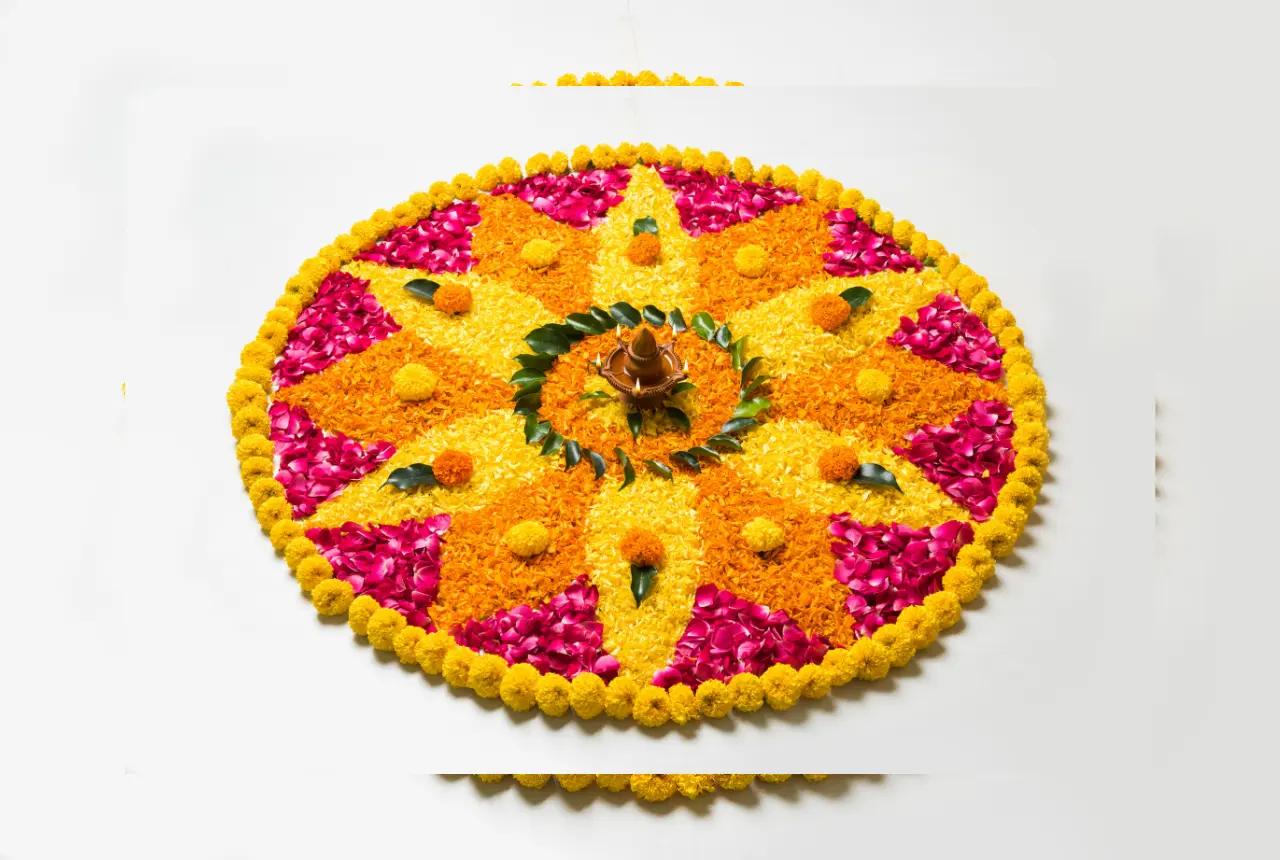
Rangoli Utsav is a cultural festival held at Srimanta Sankardev Kalakshetra in Guwahati, usually in April. This festival is closely linked to Bohag Bihu and celebrates Assamese art, music, dance and literature. The festival includes workshops, performances and exhibitions that showcase the rich talent and creativity of Assamese artists. It is a vibrant celebration of Assam’s cultural heritage and provides a platform for artists to display their skills and engage with the community, hence it becomes one of the most important art festival of Guwahati.
5. Durga Puja
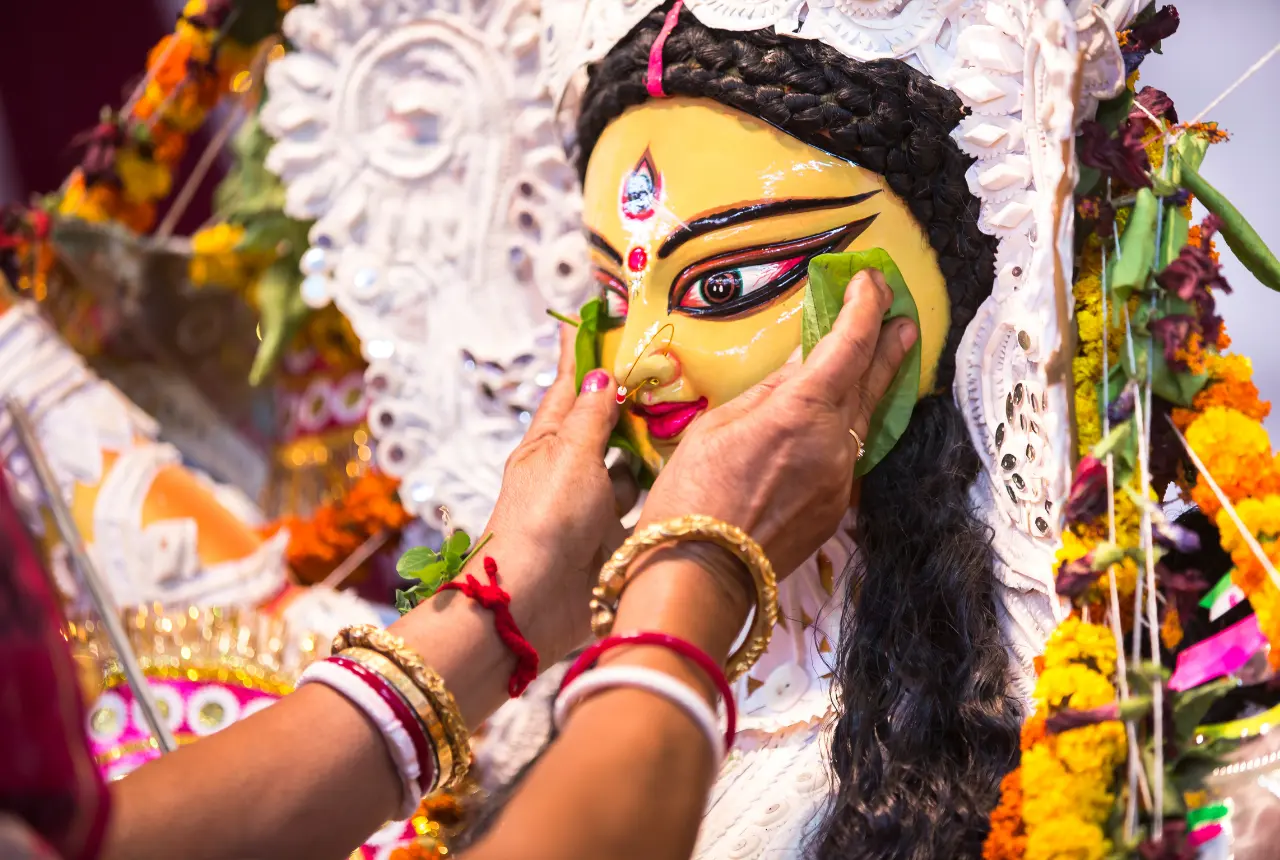
Durga Puja, celebrated in September or October, is one of the most important festivals in Guwahati. This pan-Indian festival honors Goddess Durga’s victory over the demon Mahishasura. In Guwahati, Durga Puja is marked by the creation of elaborate pandals (temporary structures housing Durga idols), vibrant decorations and cultural performances. The city comes alive with processions, music and dance, creating a festive atmosphere that attracts locals and tourists alike
6. Diwali
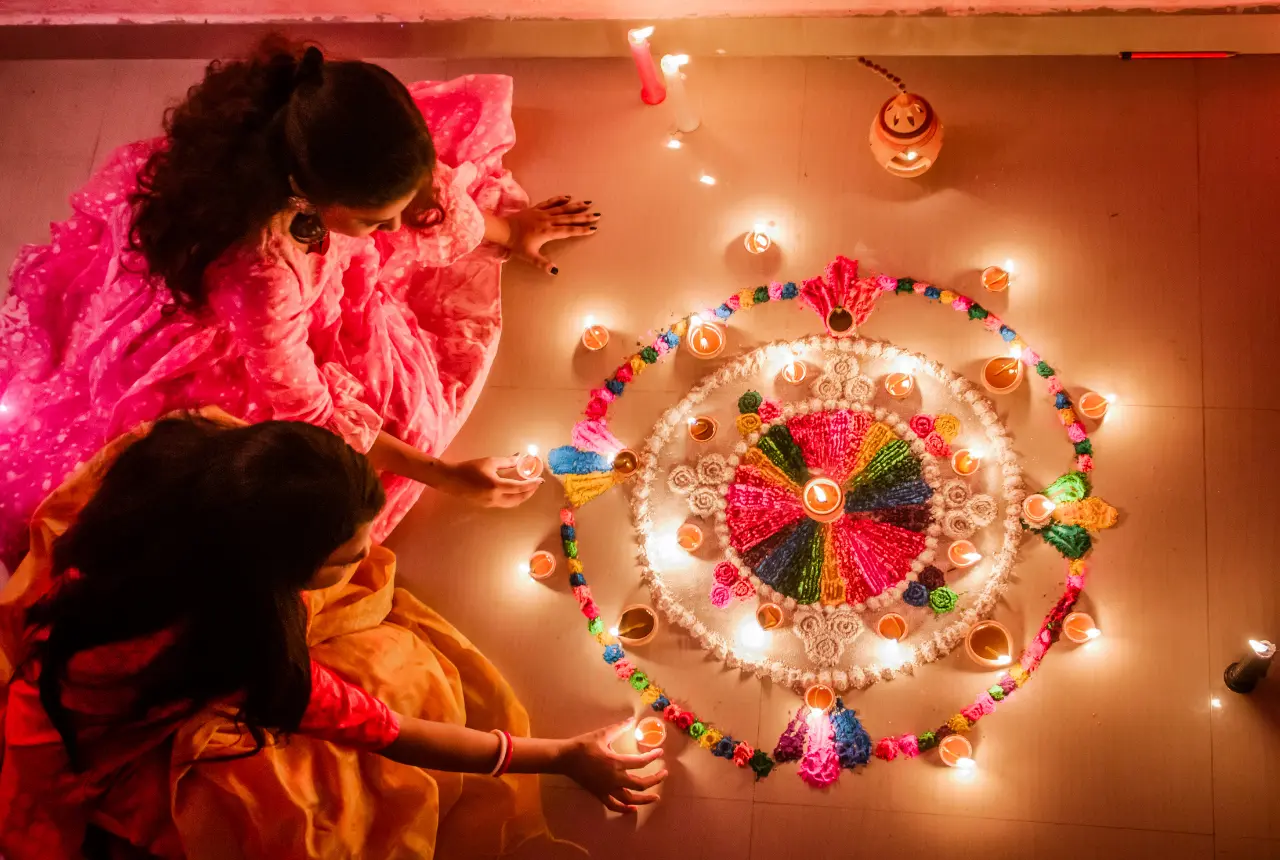
Diwali, the Festival of Lights, is celebrated in Guwahati with great enthusiasm and devotion in October or November. The festival involves the lighting of diyas (oil lamps), bursting of firecrackers, exchanging of sweets and community celebrations. Homes are illuminated with lights and the city sparkles with joy and festive spirit.
7. Janmashtami
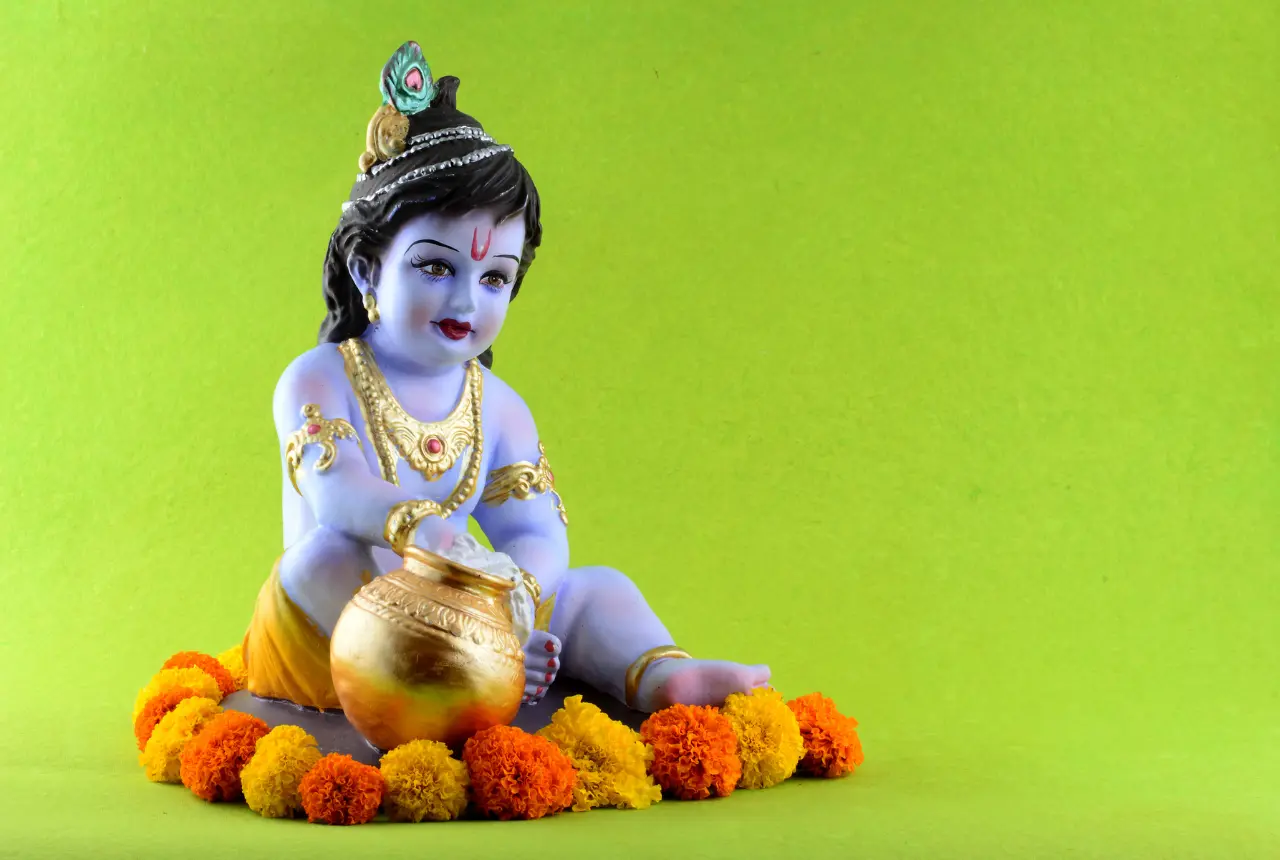
Janmashtami, celebrating the birth of Lord Krishna, is a significant festival in Guwahati. Held in August or September, this festival is marked by devotional songs, dance performances and enactments of Krishna’s life. Temples are beautifully decorated and devotees engage in fasting and night-long vigils. The ISKCON temple in Guwahati is a focal point for the celebrations, drawing large crowds.
8. Mahashivratri
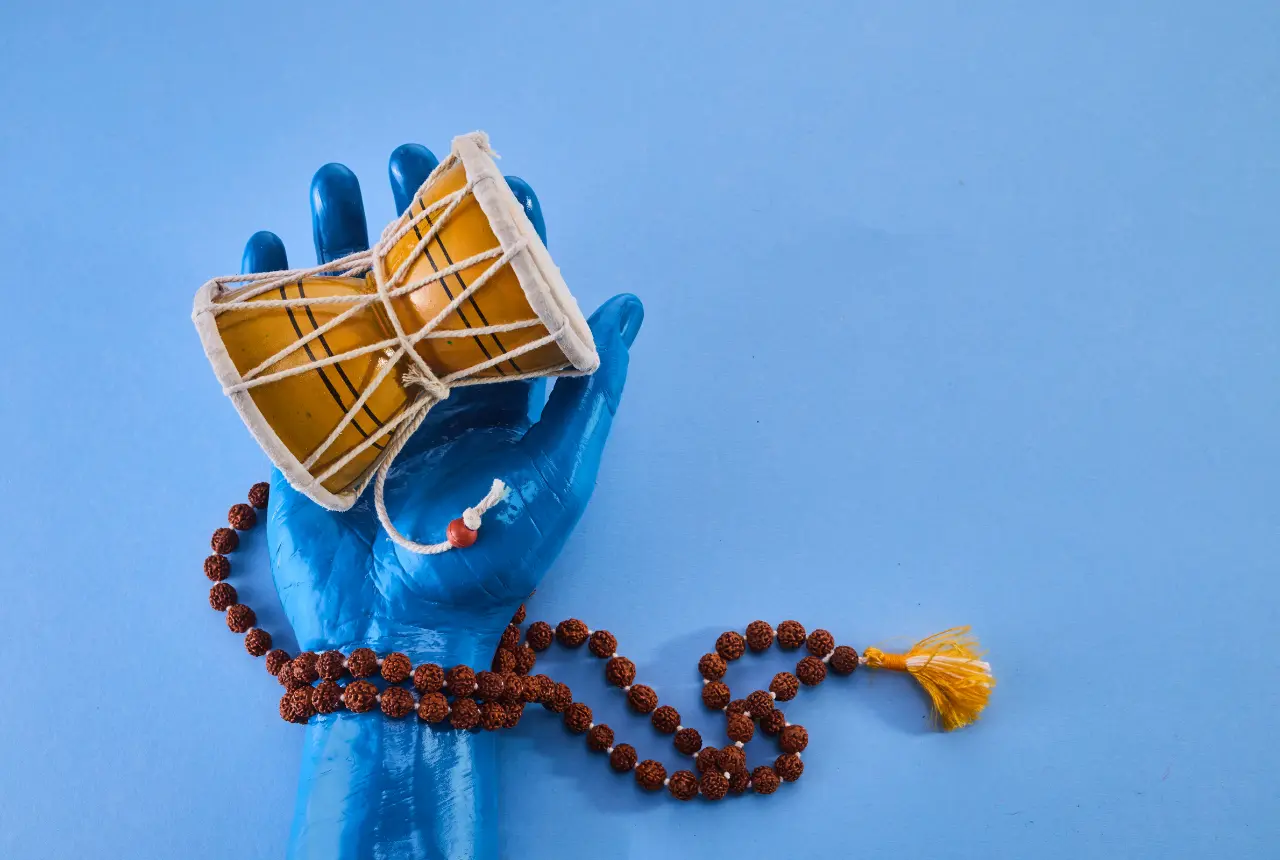
Mahashivratri, dedicated to Lord Shiva, is celebrated with great devotion in Guwahati. Held in February or March, devotees visit Shiva temples, especially the Umananda Temple located on Peacock Island in the Brahmaputra River. The festival involves night-long vigils, fasting, and the chanting of Shiva mantras, creating a serene and spiritual atmosphere.
9. Raas Mahotsav
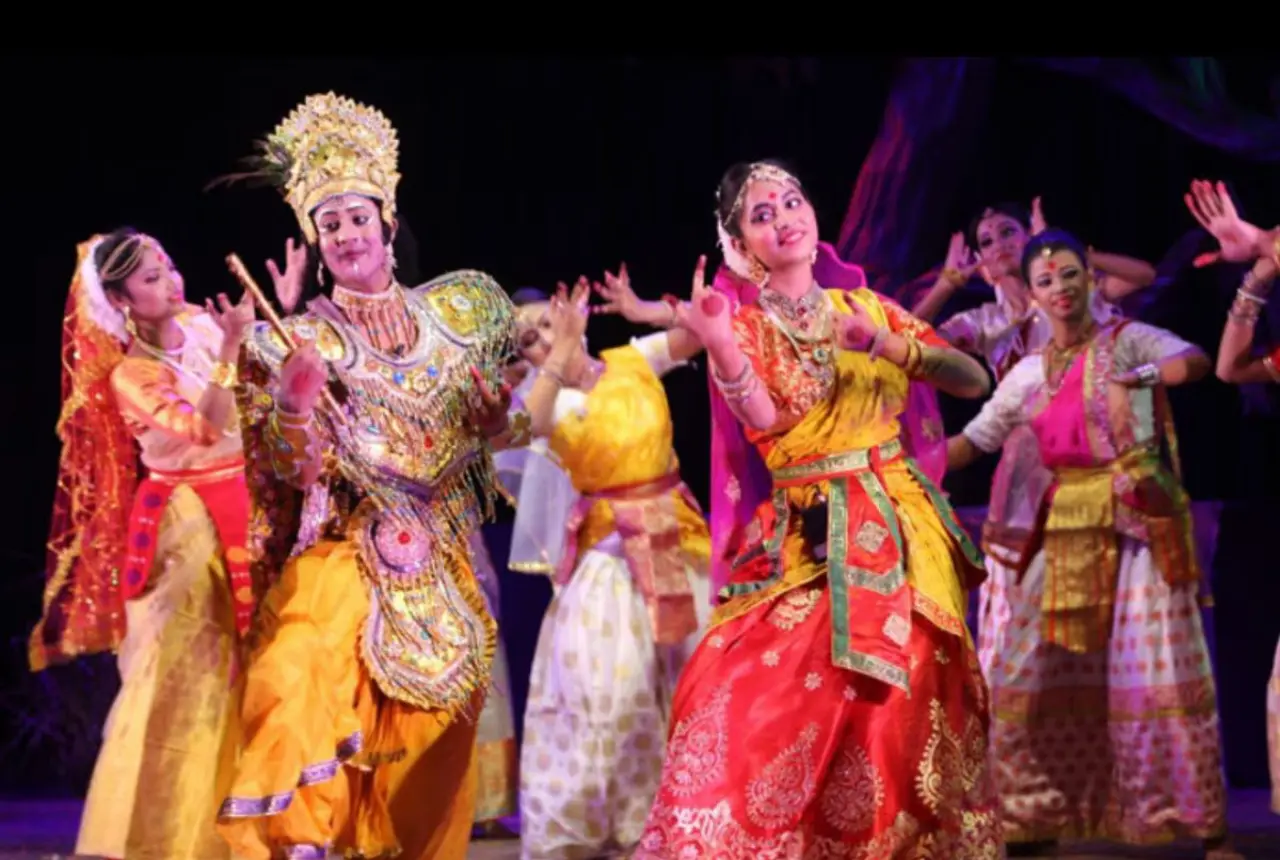
Raas Mahotsav, celebrated in November, is a grand festival that showcases the life and deeds of Lord Krishna through dance-drama performances. The festival is particularly vibrant in Guwahati, where cultural troupes perform traditional Ankiya Nat and Bhaona. The city is adorned with lights and decorations and the performances attract large audiences, making it a highlight of the cultural calendar.
10. Bohagi Utsav
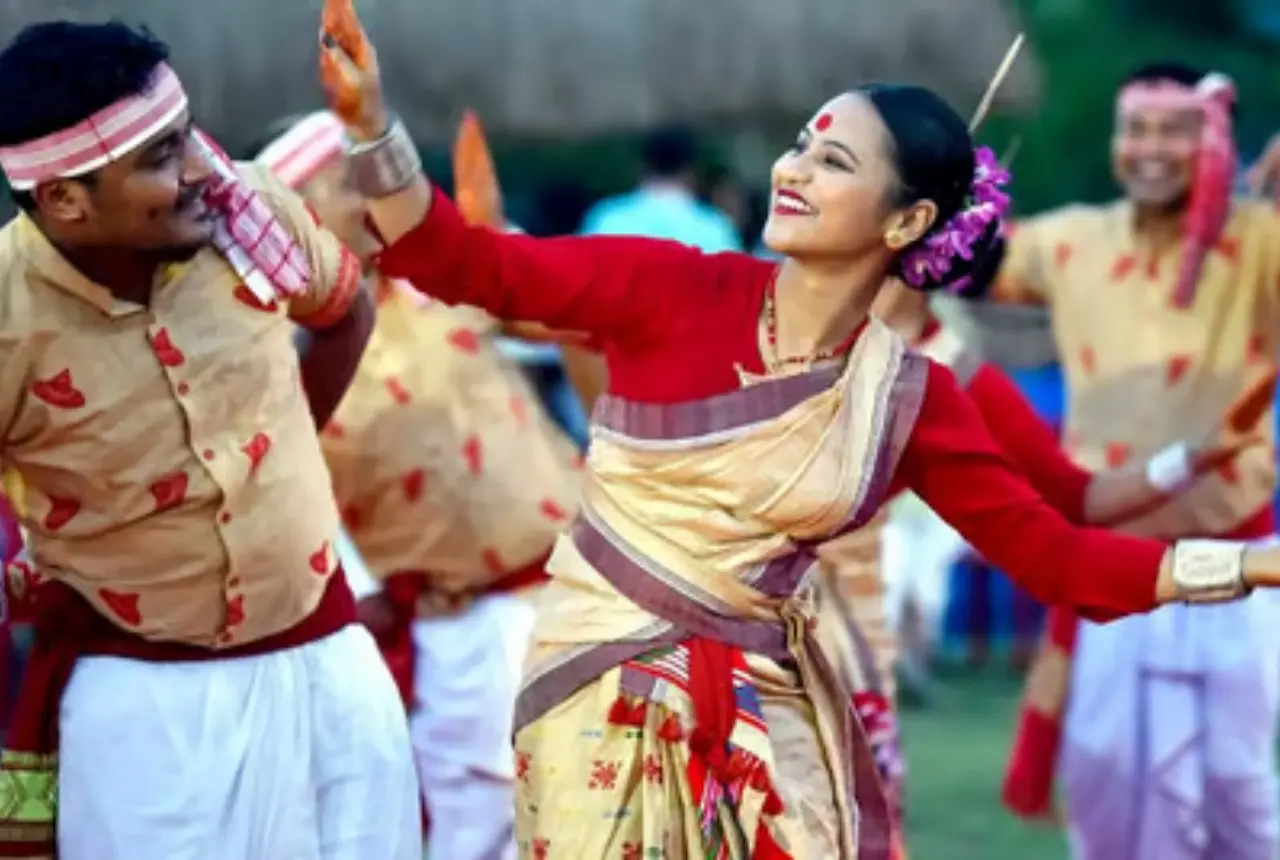
Bohagi Utsav, celebrated in April, coincides with Bohag Bihu and marks the beginning of the Assamese New Year. This festival includes various cultural programs, traditional music and dance performances and community feasts. It is a time of joy and renewal, reflecting the spirit of spring and new beginnings. In Guwahati, the festival is celebrated with much fervor, adding to the city’s vibrant cultural landscape.
Experiencing the Festivals of Guwahati
To experience the festivals of Guwahati, plan your visit around the specific festival dates. The best times to visit are April for Bohag Bihu and Rangoli Utsav, June for Ambubachi Mela, January for Magh Bihu, September/October for Durga Puja, and October/November for Diwali.
Stay at hotels or guesthouses near the city center for easy access to festival venues. During your visit, explore the local markets, try traditional Assamese cuisine, and participate in cultural activities. Respect local customs and traditions, dress appropriately and engage with the community to gain a deeper understanding of the cultural significance of these festivals.
Conclusion
Guwahati’s vibrant festival scene offers a rich tapestry of cultural and spiritual experiences. From the joyous celebrations of Bihu to the unique rituals of Ambubachi Mela, each festival provides a glimpse into the heart of Assamese culture and tradition. These festivals not only highlight the cultural richness of Guwahati but also foster a sense of community and shared heritage. By experiencing these festivals, visitors can immerse themselves in the lively and diverse cultural landscape of Guwahati, creating memories that will last a lifetime.


